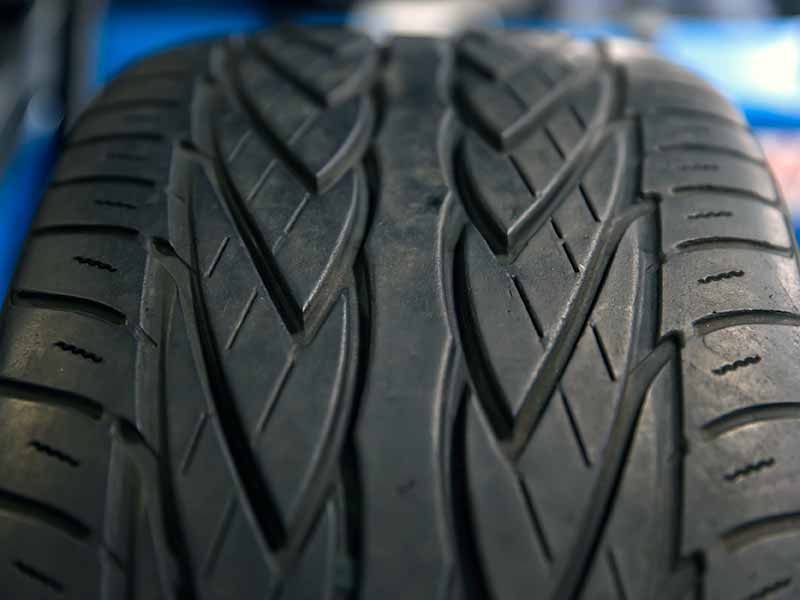Are hybrid cars as choosy about their tires as they are about conserving fuel and reducing emissions? If you’ve ever wondered whether your eco-friendly ride needs a special kind of rubber to roll on, you’re not alone.
Do Hybrid Cars Need Special Tires?
Yes, hybrid cars often benefit from special tires. These tires are designed to support the additional weight of hybrid vehicles and optimize their fuel efficiency.
In this article, we explore the unique requirements of tires for hybrid vehicles, how they differ from standard tires, and why choosing the right type is crucial for your car’s performance and efficiency.
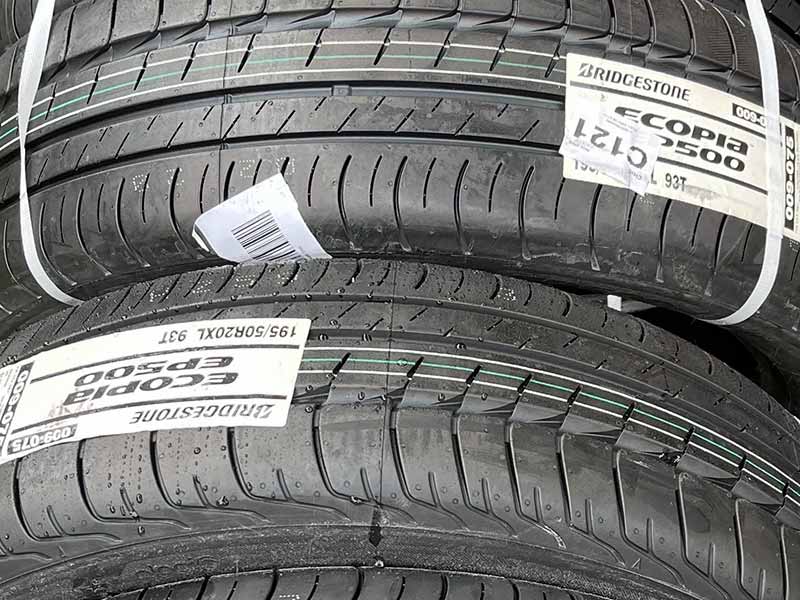
Characteristics of Hybrid Car Tires
Now that we understand what sets hybrid cars apart, let’s focus on the tires. What makes a tire suitable for a hybrid vehicle? This section explores the key characteristics that define hybrid car tires and why they matter.
Designed for Efficiency and Durability
Hybrid car tires aren’t just your average rubber rings; they are engineered with specific features to meet the unique demands of hybrid vehicles.
- Low Rolling Resistance: This is a big deal in hybrid tires. Low rolling resistance means the tire does not require as much energy to roll, contributing significantly to the overall fuel efficiency of the hybrid car. It’s a fine balance though – too little resistance can impact handling and braking.
- Enhanced Durability: Remember, hybrids are heavier than traditional cars. This means the tires need to be robust enough to handle the extra load without compromising on performance or safety.
- Eco-Friendly Materials: In line with the eco-conscious nature of hybrid vehicles, many manufacturers now use more environmentally friendly materials in tire production. These materials are designed to reduce the tire’s impact on the environment, both in terms of production and during their lifecycle.
If you decide to mount regular tires on your hybrid, make sure the load range matches the OEM tire.
TireGrades Expert Tip
The Importance of Tread and Compound
The tread pattern and rubber compound of a tire are critical, especially for hybrids.
- Tread Design: The tread must provide sufficient grip for both the electric and combustion engine modes of a hybrid car. This includes ensuring good performance in wet conditions and effective handling during regenerative braking.
- Rubber Compound: The compound of a hybrid tire is typically different from conventional tires. It’s usually a blend that aims to reduce rolling resistance while still providing enough grip and lasting longer under the additional strain from the hybrid’s weight and torque characteristics.
Noise Reduction: A Silent Ride
- Acoustic Comfort: One unique aspect of hybrid vehicles is their quiet operation, especially at lower speeds when running on electric power. To complement this, hybrid car tires often feature design elements that reduce road noise, enhancing the quiet driving experience.
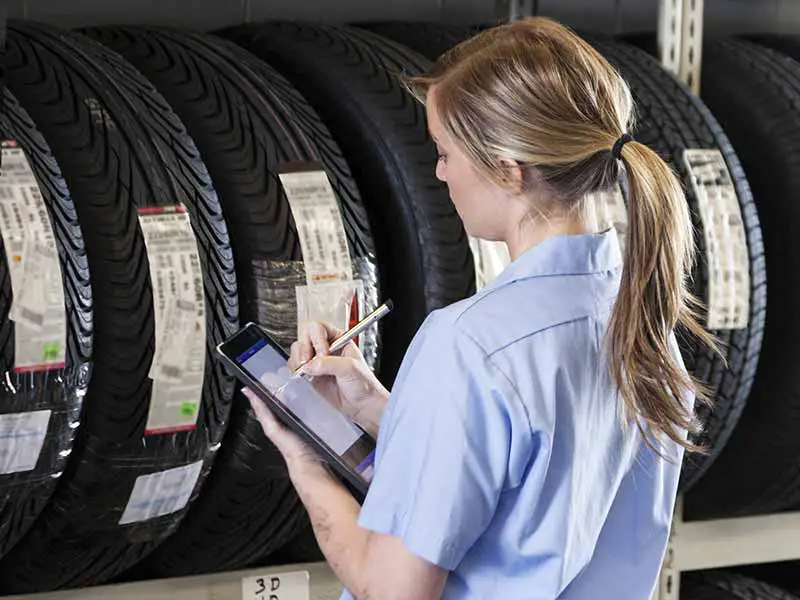
Comparing Standard and Hybrid Car Tires
Having explored the characteristics of hybrid car tires, it’s important to understand how they differ from standard tires. This comparison will shed light on why selecting the right tire for a hybrid vehicle is more than just a matter of size and fit.
Key Differences Between Standard and Hybrid Tires
- Rolling Resistance: The most significant difference lies in rolling resistance. Hybrid tires are specifically designed to have lower rolling resistance than standard tires, contributing to the hybrid’s fuel efficiency and reduced environmental impact.
- Weight Support: Hybrid cars are heavier due to their battery packs and electric motors. Therefore, their tires are constructed to withstand this additional weight, which involves stronger sidewalls and different internal structures compared to standard tires.
- Tread and Compound: While both types of tires have tread patterns and rubber compounds designed for longevity and performance, those in hybrid-specific tires are fine-tuned for optimal performance under hybrid vehicle conditions, like supporting regenerative braking and handling instant torque delivery.
Impact on Performance and Efficiency
- Fuel Efficiency: The low rolling resistance of hybrid tires directly impacts fuel efficiency. By requiring less energy to move, these tires help in maximizing the miles you get per gallon.
- Handling and Safety: Hybrid tires are designed to offer a balance between fuel efficiency and safe handling. Their construction ensures they can handle the weight and power of hybrid cars without compromising on performance, especially in braking and cornering.
Durability Considerations
- Wear and Tear: The unique construction of hybrid tires typically allows them to better withstand the wear and tear caused by the heavier weight and power characteristics of hybrid vehicles. However, this doesn’t mean they are immune to regular wear – proper maintenance and timely replacement are still crucial.
Cost Factor
- Initial Investment vs Long-Term Savings: Hybrid tires might come with a higher price tag compared to standard tires, but this is offset by the long-term savings in fuel efficiency and the potential for longer tire life due to their specialized construction.
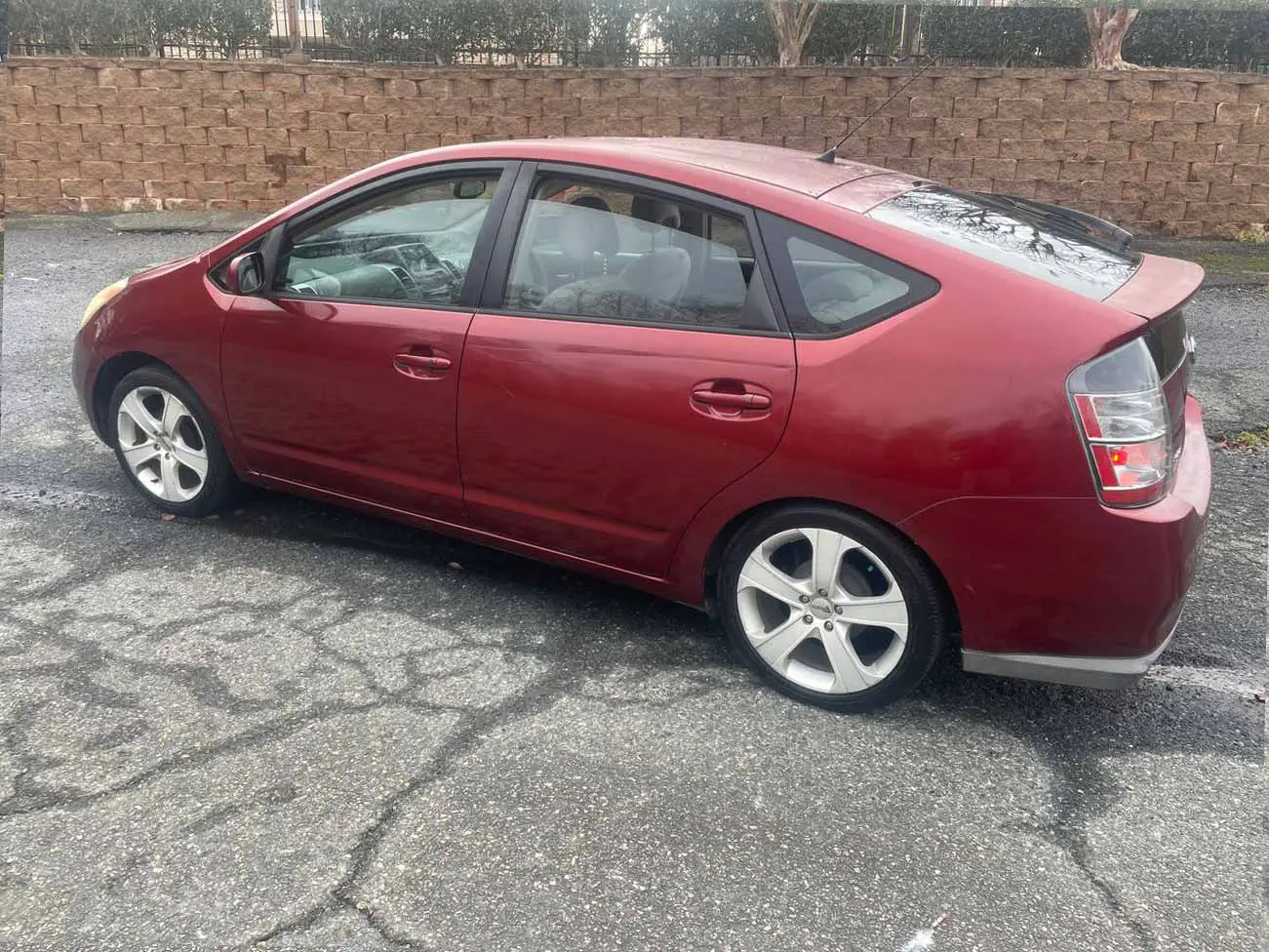
Importance of Choosing the Right Tires for Hybrid Cars
Selecting the appropriate tires for a hybrid vehicle goes beyond just aesthetics or size. It’s about enhancing the car’s performance, safety, and efficiency. This section highlights why making the right tire choice is crucial for hybrid car owners.
Impact on Fuel Efficiency
- Role of Tires in Fuel Economy: Tires play a significant role in a vehicle’s fuel economy, especially for hybrids. The right tires with low rolling resistance can improve fuel efficiency, making the most of the hybrid’s design for energy saving.
- Long-term Cost Savings: While the initial cost of these specialized tires might be higher, the savings in fuel costs over time can be substantial, making them a worthwhile investment.
Safety and Handling
- Handling and Responsiveness: The right tires ensure that the car responds accurately to steering and braking. This is crucial for hybrids, which have unique weight distributions and torque characteristics.
- Improved Braking: Good tires contribute to shorter braking distances, which is particularly important for heavier hybrid vehicles.
Wear and Tear
- Durability Under Unique Conditions: Hybrid-specific tires are designed to withstand the additional stress caused by the vehicle’s weight and instant torque. Choosing the right tires means less frequent replacements and more consistent performance.
- Regular Maintenance: Even with the right tires, regular maintenance is key. This includes checking tire pressure, tread depth, and alignment to ensure optimal performance and safety.
Noise Reduction
- Enhancing the Quiet Ride: Hybrids are known for their quiet operation. Using tires specifically designed for these vehicles helps maintain this quietness, especially at lower speeds where engine noise is minimal.
Environmental Impact
- Reducing Carbon Footprint: By optimizing fuel efficiency and using eco-friendly materials, the right tires for hybrid cars align with the environmental goals of hybrid technology, contributing to a lower carbon footprint.
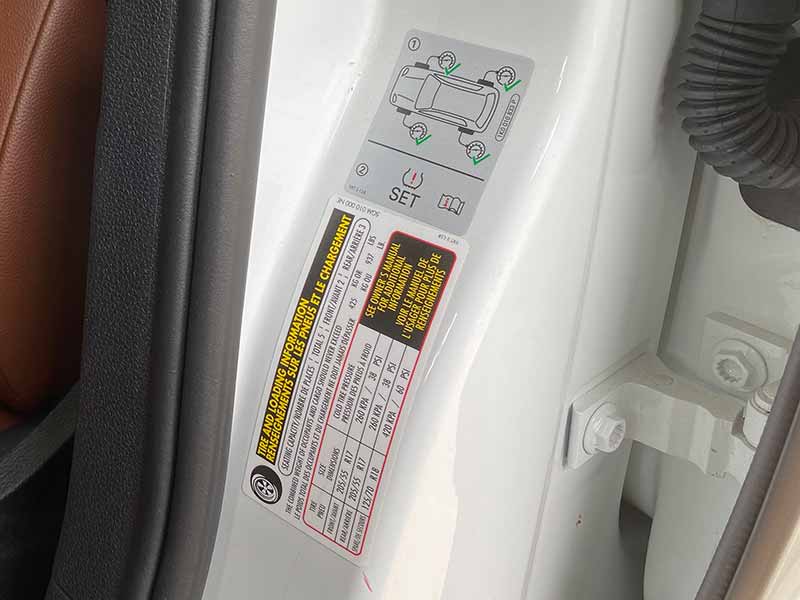
Recommendations for Hybrid Car Owners
Choosing the right tires for your hybrid vehicle can seem daunting, but it doesn’t have to be. In this section, we’ll offer practical advice to help hybrid car owners make informed decisions about their tires, ensuring optimal performance and longevity.
Selecting the Right Tires
- Check Manufacturer Recommendations: Start by consulting your vehicle’s manual. Manufacturers often recommend specific tire types or brands that work best with your model.
- Focus on Low Rolling Resistance Tires: Look for tires that are specifically designed for hybrid vehicles, with emphasis on low rolling resistance to enhance fuel efficiency.
- Consider Your Driving Conditions: Take into account the typical driving conditions you encounter. If you live in an area with lots of rain or snow, look for tires that offer good traction and safety features for these conditions.
Tips for Maintenance and Maximizing Tire Lifespan
- Regular Tire Pressure Checks: Keep your tires inflated to the recommended pressure. Under-inflated tires can reduce fuel efficiency and wear out more quickly.
- Routine Rotation and Alignment: Regular tire rotation and wheel alignment help in even wear, extending the life of your tires.
- Monitor Tread Wear: Keep an eye on the tread depth. Worn treads can compromise safety and efficiency. Replace tires when they reach the wear indicator.
When to Replace Your Tires
- Wear Indicator Bars: Most tires have wear indicator bars that show when the tread depth is too low. This is a clear sign that it’s time for a replacement.
- Age of the Tires: Even if the tread looks fine, aging tires (usually around 5-6 years old) can lose their effectiveness and should be replaced.
- Signs of Damage: Regularly inspect your tires for any signs of damage like cuts, bulges, or irregular wear patterns, which could indicate the need for replacement.
Environmental Considerations
- Eco-Friendly Options: If you’re environmentally conscious, look for tires made with sustainable materials. These tires align with the eco-friendly nature of hybrid vehicles.
Cost vs. Value
- Balancing Cost and Quality: While hybrid-specific tires might be more expensive, investing in high-quality tires can save you money in the long run through better fuel efficiency and longer tire life.
Resources
Below are some links you may find helpful when learning about tires:
- Do EVs and hybrids need special tires or will regular tires work? – AutoTrader.ca
- The difference between regular tyres and those designed for EVs and hybrids – Kwik Fit
Final Thoughts
Hybrid vehicles, with their additional weight and unique power delivery, require tires that can handle these specific demands.
Low rolling resistance tires, which contribute to better fuel efficiency, are particularly beneficial for hybrids.
However, it’s not just about efficiency; the right tires also play a vital role in the overall safety and handling of the vehicle.
Regular maintenance, such as checking tire pressure and tread depth, remains essential to prolong the life of your tires and maintain the performance of your hybrid car.
Good luck and happy motoring.
